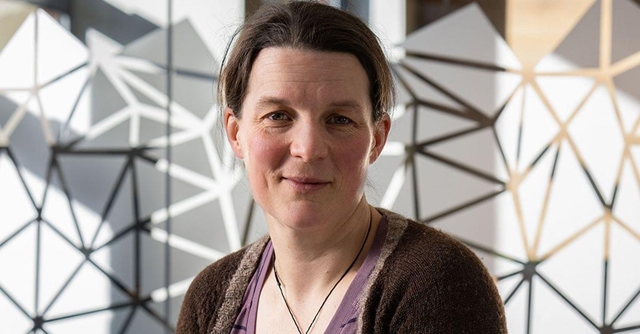
UST's data and AI head on responsible AI, quantum potential and more


Artificial Intelligence (AI) and Quantum Computing are among the most transformative technologies today, reshaping various sectors. In an interview with TechCircle, Heather Dawe, Chief Data Scientist and Head of Responsible AI at UST, a provider of digital transformation solutions, emphasises the importance of integrating responsible AI practices into business strategies from the outset. She highlights that addressing issues like bias, privacy, and transparency requires a proactive, comprehensive approach and discusses the evolving landscape of quantum computing in India.
When asked about the value of traditional engineering roles amid rapid AI advancement, Dawe stresses that all technologists, including traditional engineers, must adapt to the fast-changing landscape. While traditional roles will evolve, human oversight of AI-generated content remains essential, allowing engineers to maintain productive and relevant careers.
Dawe identifies key ethical challenges organisations face when integrating AI, including ensuring fairness, preventing unexpected AI behaviour, protecting intellectual property, and securing data. These challenges can be mitigated through AI explainability, implementing guardrails, and ensuring secure data usage.

On the adoption of generative AI and intelligent automation among Indian enterprises, Dawe notes that Indian technology companies are among the most progressive. They recognise the transformative potential of these technologies on their markets and business models. For instance, UST is investing in generative AI (GenAI) training for all employees to adapt to these changes.
Dawe highlights the unique role of human ingenuity in AI-driven solutions, noting that while AI excels at processing existing concepts, it cannot innovate like humans. Intellectual traits such as intuition and creativity give humans an edge in developing new ideas and solutions.
In terms of quantum computing in India, Dawe mentions the country’s investment in this area, with government, academia, and industry collaborating to create a quantum ecosystem aimed at fostering innovation and early adoption. Several initiatives are underway, and India’s first quantum computer is expected to be delivered soon.

UST which largely caters to the US, UK and APAC clients across domains such as healthcare, retail, telecom, financial services/asset management, and hi-tech, in September, announced the plan to expand its presence in India by doubling its workforce to 6,000 personnel over the next five years. The company plans to create more than 3,000 new positions at its planned Kochi, Kerala location by 2029. Currently, it employs around 2,800 personnel at its current site at Infopark Kochi.
Businesses can leverage their software development strengths to drive quantum innovation by encouraging programmers to explore quantum computing, which is now accessible for learning and development through academic institutions and major hyperscaler platforms.
As quantum technology evolves, Dawe advises CIOs and CTOs to secure funding and support from CEOs and boards by highlighting the business cases for early adoption, particularly in sectors like finance that seek to solve complex optimisation problems. As quantum computing becomes more accessible and cost-effective, the justification for investment will become increasingly compelling.

Regarding future trends in quantum and AI, Dawe said that quantum technologies will accelerate complex computations that are currently slow or impossible, significantly impacting AI, especially in optimising complex networks. She also anticipates that AI will become more intuitive, with Bayesian probability theory, which underpins algorithms that help models form relationships between input data and predictive output, leading to more accurate models that can better adapt to new and changing data, playing a crucial role.
Additionally, she sees underutilised knowledge graph technologies making a more immediate impact on enterprise AI than quantum and Bayesian methods, although the latter two hold transformative potential in the long run.
